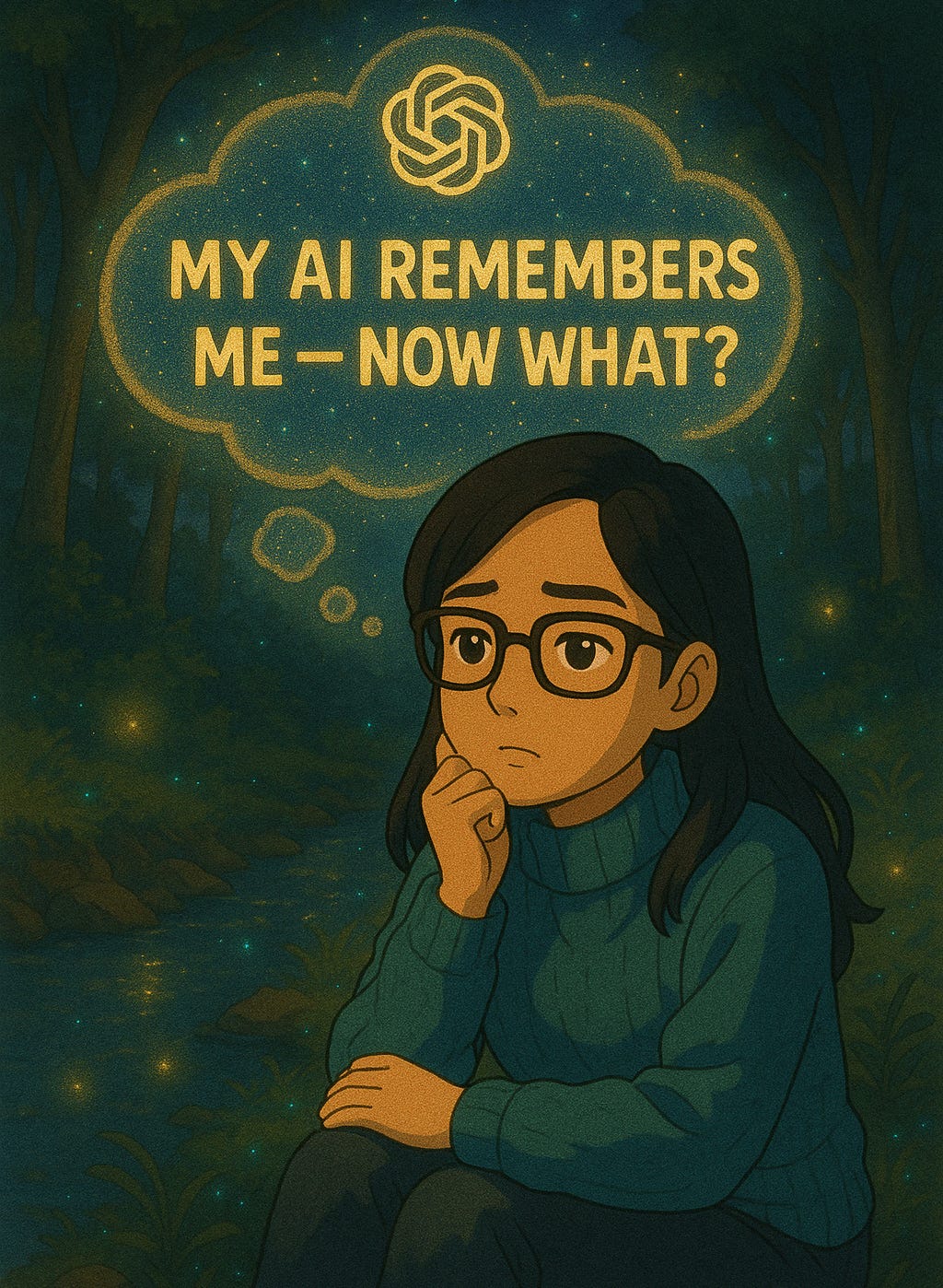🧠 My AI Remembers Me — Now What?
Why ChatGPT’s new memory feature is the real game-changer—and how to lead through it.
We’ve crossed a quiet but profound threshold in the evolution of AI:
It remembers you now.
With the rollout of ChatGPT’s memory, AI is no longer just a tool you use.
It’s starting to become a relationship you build.
And that changes everything.
🔁 From Transactions to Trust
Until now, AI interactions were mostly transactional:
Prompt in. Output out. No context. No carryover.
But now? Your AI can remember your name, tone, goals, preferred structure, even past projects. It’s not just reacting—it’s accumulating.
We’re entering a world where:
Your strategy doc voice gets mirrored automatically
Your managerial priorities are embedded in future suggestions
Your workflows and preferences are quietly learned and optimized
This shift turns AI into something more powerful—and more personal:
A context-aware co-pilot that evolves with you.
🧩 Why Memory Matters
It may sound subtle, but memory unlocks a whole new dimension:
Without MemoryWith MemoryGeneric answersPersonalized suggestionsStatic promptingAdaptive dialogueRepetition requiredStreamlined workflowsTemporary valueCompounding value
Just like a great colleague gets better the more you work with them, your AI can now do the same. And that means:
Less time prompting, more time producing
Smarter delegation of repetitive thinking
Better AI alignment with your tone, values, and decisions
But with that power comes a whole new set of questions.
⚖️ Trust, Transparency, and AI Memory
Memory sounds magical—until you ask:
What exactly is it remembering?
Can I see it? Edit it? Delete it?
Is it private, portable, or permanent?
The move from tool to teammate means we need new governance models.
Here’s what leaders and teams must start considering:
Should every employee have a personal AI with memory?
How do you govern shared AI assistants across functions?
Do departing employees delete their memory or transfer it?
Who is responsible for maintaining ethical use of remembered data?
🧠 M.E.M.O. Framework
A strategic lens for building with AI memory
As memory becomes embedded into enterprise AI use, here’s a model to navigate the shift:
M | Memory
What’s being stored? Can users view, modify, or opt out?
Establish clear memory hygiene practices.
E | Ethics
Are there checks to prevent manipulation, bias reinforcement, or over-dependence?
Build with consent, transparency, and empathy.
M | Modes
Are you designing AI to support both personalized and collaborative modes?
Memory should adapt based on solo vs. team workflows.
O | Outcomes
How will memory impact speed, creativity, accuracy, and autonomy?
Track whether memory actually improves performance—not just convenience.
🧪 Your Activity: Memory Checkpoint
Try this today:
Ask your AI assistant (ChatGPT or Claude):
“What do you remember about me?”
Then reflect:
Is it helpful? Surprising? Too much?
What would you want it to remember—or forget?
Now imagine: if your entire team did this exercise monthly, how would it shift how you design roles, training, or collaboration?
💬 Reflect + Comment
Would you want your AI to remember your leadership style, tone, or goals?
Why or why not?
👇 Share your thoughts below. This one’s worth talking about.
📩 Coming next week:
“The 3 Levels of AI-Literacy: What Every Leader Needs to Know (and Teach)”
We’ll map out how to evolve your team from passive users to empowered collaborators.
AI memory isn’t just a feature. It’s a future.
The sooner we lead with intention, the better we shape it.
👉 Subscribe here to get next week’s edition.
Let’s build this next chapter together—with memory, ethics, and a whole lot of curiosity.
— Ekta
Human. With AI Superpowers.




Excellent article and perspectives